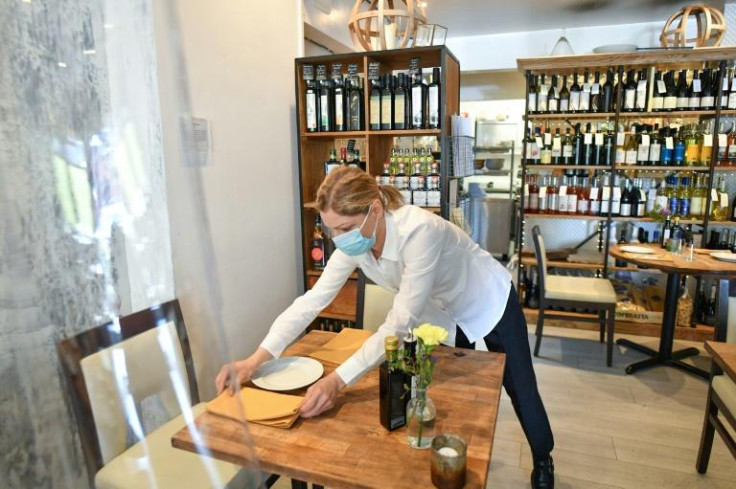The UK Hospitality Sector Is On The Brink Of Financial Collapse
Managers of hospitality businesses in the UK are calling on the government to recognise how the soaring energy and food prices have impacted the hospitable sector.

A survey, conducted by UK Hospitality, found that CEOs of hospitality businesses, including pubs, hotels, restaurants and cafes, were lacking business confidence and looking to the future with uncertainty.
A staggering 25 per cent of hospitality businesses in the UK have admitted that they are on the edge of a financial collapse – almost running out of funds with no cash reserves left.
A further 29 per cent said that they have less than three months' worth of money in savings.
Almost all of the hospitality businesses included in the survey, 98 per cent of them, admitted that they had seen the price of food and drinks rise in the past 12 months.
Amid the current cost of living crisis in the UK, a staggering 96 per cent of hospitable CEOs reported a rise in wage costs and 98 per cent said that they were unsure that they would be able to afford the National Living Wage rise – due in April this year.
The notorious rise in energy costs across the UK has also left 85 per cent of UK hospitality businesses claiming to be worried about expenses.
More than half, 60 per cent, of those surveyed said that they were not optimistic about prospects for the remaining months of 2024, due to the huge increases in energy and food prices.
Hospitality managers, together with UK Hospitality, have repeatedly called on Chancellor Jeremy Hunt to consider cutting the 20 per cent VAT as part of the National Insurance contributions rate and business rates.
Tom Fahey, the co-owner of the Isle of Wight's The Terrace Restaurant in Yarmouth and The Terrace Rooms and Wine in Ventnor, told reporters: "Every single cost has increased. Operating at 20 per cent VAT with inputs on which we can't claim anything back is punishing. No sector should have to endure it. We do everything possible to keep prices at a level that's accessible for our target market but doing so is an impossible balance."
"We are being forced to price ourselves out of our demographic which has meant cutting covers, cutting opening hours and cutting staffing while changing our offer to justify the pricing needed to cover wage increases, duty increases, insane utilities and food inflation," he added.
Fahey, who is also one of the main voices in the call for saving the UK's hospitality sector from financial collapse, went on to note that Brexit, the COVID-19 pandemic, staff shortages, rising energy bills, rail strikes and the recent rates of inflation have each contributed to the current state of the hospitable industry.
With reference to his The Terrace Rooms and Wine restaurant, Fahley explained that after the pandemic, "we actually did well in Ventnor at the hotel with soup and a toastie for £12 – but at that price, it's basically breaking even, so we're still reliant on wine sales".
While discussing how the UK government have recognised the hospitality sector plunging into crisis, the restaurant co-owner explained: "It will take mass closures and even then they will still be too busy playing political games to take any notice of an industry they have zero empathy with and zero respect for."
In addition to supporting the scrapping of the 20 per cent VAT, as part of the National Insurance contributions rate and business rates, Fahey also told reporters that he is also urging the government to relax immigration rules.
Welcoming migrant workers to the hospitality industry would help tackle the staffing crisis by filling the huge number of vacancies.
According to UK Hospitality, the government have also had discussions surrounding the hospitality sector being added to the shortage occupation list.
As part of the Skilled Workers Visa, those who want to reside in the UK are able to apply for roles in understaffed sectors. In return, the overseas workers will be provided with the right to live and work in the UK, in addition to 80 per cent of the jobs' usual going rate.
© Copyright IBTimes 2025. All rights reserved.






















